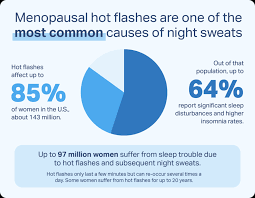Natural Remedies for Anxiety and Depression
Anxiety and depression are common mental health conditions that can significantly impact a person’s quality of life. While professional help is important in managing these conditions, some individuals may also benefit from incorporating natural remedies into their treatment plan. Here are some natural remedies that have shown promise in helping to alleviate symptoms of anxiety and depression:
Exercise
Physical activity has been shown to have a positive impact on mental health by releasing endorphins, which are known as “feel-good” hormones. Regular exercise can help reduce symptoms of anxiety and depression and improve overall well-being.
Mindfulness and Meditation
Practicing mindfulness and meditation techniques can help calm the mind, reduce stress, and improve emotional regulation. These practices encourage living in the present moment and can be beneficial for managing symptoms of anxiety and depression.
Herbal Supplements
Certain herbal supplements like St. John’s Wort, lavender, chamomile, and passionflower have been studied for their potential calming effects on the mind and body. It’s essential to consult with a healthcare provider before incorporating any herbal supplements into your routine.
Aromatherapy
Aromatherapy involves using essential oils to promote relaxation and reduce stress. Scents like lavender, rosemary, bergamot, and chamomile have been associated with calming effects that may help alleviate symptoms of anxiety and depression.
Healthy Diet
Eating a balanced diet rich in fruits, vegetables, whole grains, lean proteins, and healthy fats can support overall mental health. Nutrient-dense foods provide essential vitamins and minerals that play a role in mood regulation.
While these natural remedies can complement traditional treatments for anxiety and depression, it’s crucial to consult with a healthcare provider or mental health professional before making any significant changes to your treatment plan.
Exploring Nature’s Relief: A Guide to Natural Remedies for Anxiety and Depression
- What are some natural remedies for anxiety and depression?
- How effective are natural remedies in managing symptoms of anxiety and depression?
- Are there any side effects associated with using natural remedies for anxiety and depression?
- Can herbal supplements help with anxiety and depression?
- What role does exercise play in reducing symptoms of anxiety and depression?
- Is mindfulness or meditation beneficial for managing anxiety and depression?
- How can diet impact symptoms of anxiety and depression?
What are some natural remedies for anxiety and depression?
When seeking natural remedies for anxiety and depression, individuals often inquire about various options to alleviate their symptoms. Commonly recommended natural remedies include regular exercise to boost endorphins and improve mood, mindfulness and meditation practices to promote relaxation and emotional balance, herbal supplements like St. John’s Wort or lavender for their calming effects, aromatherapy using essential oils such as lavender or chamomile to reduce stress, and maintaining a healthy diet rich in nutrients essential for mental well-being. It is advisable to consult with a healthcare provider before incorporating these natural remedies into one’s routine to ensure they are safe and effective for individual needs.
How effective are natural remedies in managing symptoms of anxiety and depression?
When considering natural remedies for managing symptoms of anxiety and depression, effectiveness can vary from person to person. While some individuals may experience significant relief from incorporating natural remedies like exercise, mindfulness practices, herbal supplements, aromatherapy, and a healthy diet into their routine, others may not find them as impactful. It’s essential to understand that natural remedies are not one-size-fits-all solutions and may work best when combined with professional guidance and treatment. Consulting with a healthcare provider or mental health professional can help determine the most suitable approach for addressing anxiety and depression symptoms based on individual needs and circumstances.
Are there any side effects associated with using natural remedies for anxiety and depression?
When considering natural remedies for anxiety and depression, it’s essential to be aware of potential side effects that may accompany their use. While many natural remedies are generally well-tolerated, some individuals may experience side effects such as digestive issues, allergic reactions, or interactions with medications. For example, certain herbal supplements can interact with prescription medications or exacerbate existing health conditions. It’s crucial to consult with a healthcare provider or a qualified professional before incorporating natural remedies into your treatment plan to ensure they are safe and appropriate for your individual needs.
Can herbal supplements help with anxiety and depression?
Herbal supplements have gained attention as potential natural remedies for anxiety and depression. While some herbal supplements like St. John’s Wort, lavender, chamomile, and passionflower have shown promise in promoting relaxation and reducing stress, their effectiveness in managing anxiety and depression varies from person to person. It’s essential to approach herbal supplements with caution and consult with a healthcare provider before incorporating them into your treatment plan. Professional guidance can help determine the appropriate dosage, potential interactions with other medications, and overall suitability based on individual health conditions.
What role does exercise play in reducing symptoms of anxiety and depression?
Exercise plays a significant role in reducing symptoms of anxiety and depression by promoting the release of endorphins, which are neurotransmitters known as “feel-good” hormones. Engaging in regular physical activity can help elevate mood, reduce stress levels, and improve overall well-being. Exercise also helps increase blood flow to the brain, providing a boost in cognitive function and mental clarity. Additionally, the sense of accomplishment and empowerment that comes from setting and achieving fitness goals can enhance self-esteem and confidence, contributing to a more positive outlook on life. Incorporating exercise into a daily routine can be an effective natural remedy for managing symptoms of anxiety and depression.
Is mindfulness or meditation beneficial for managing anxiety and depression?
Mindfulness and meditation have shown to be beneficial tools in managing anxiety and depression. By practicing mindfulness, individuals can learn to focus on the present moment, observe their thoughts and feelings without judgment, and cultivate a sense of calmness. Meditation techniques, such as deep breathing exercises or guided imagery, can help reduce stress levels and promote relaxation. Incorporating mindfulness and meditation into a daily routine can enhance emotional regulation, improve overall well-being, and provide individuals with valuable coping mechanisms to navigate the challenges of anxiety and depression.
How can diet impact symptoms of anxiety and depression?
Diet plays a crucial role in influencing symptoms of anxiety and depression. Consuming a balanced diet rich in nutrients such as omega-3 fatty acids, B vitamins, magnesium, and antioxidants can positively impact mental health. These nutrients support brain function, mood regulation, and the body’s stress response system. Conversely, diets high in processed foods, sugar, and unhealthy fats have been linked to increased inflammation in the body, which may exacerbate symptoms of anxiety and depression. Making mindful food choices and focusing on a diet that nourishes both the body and mind can contribute to better mental well-being and help manage symptoms of anxiety and depression effectively.



